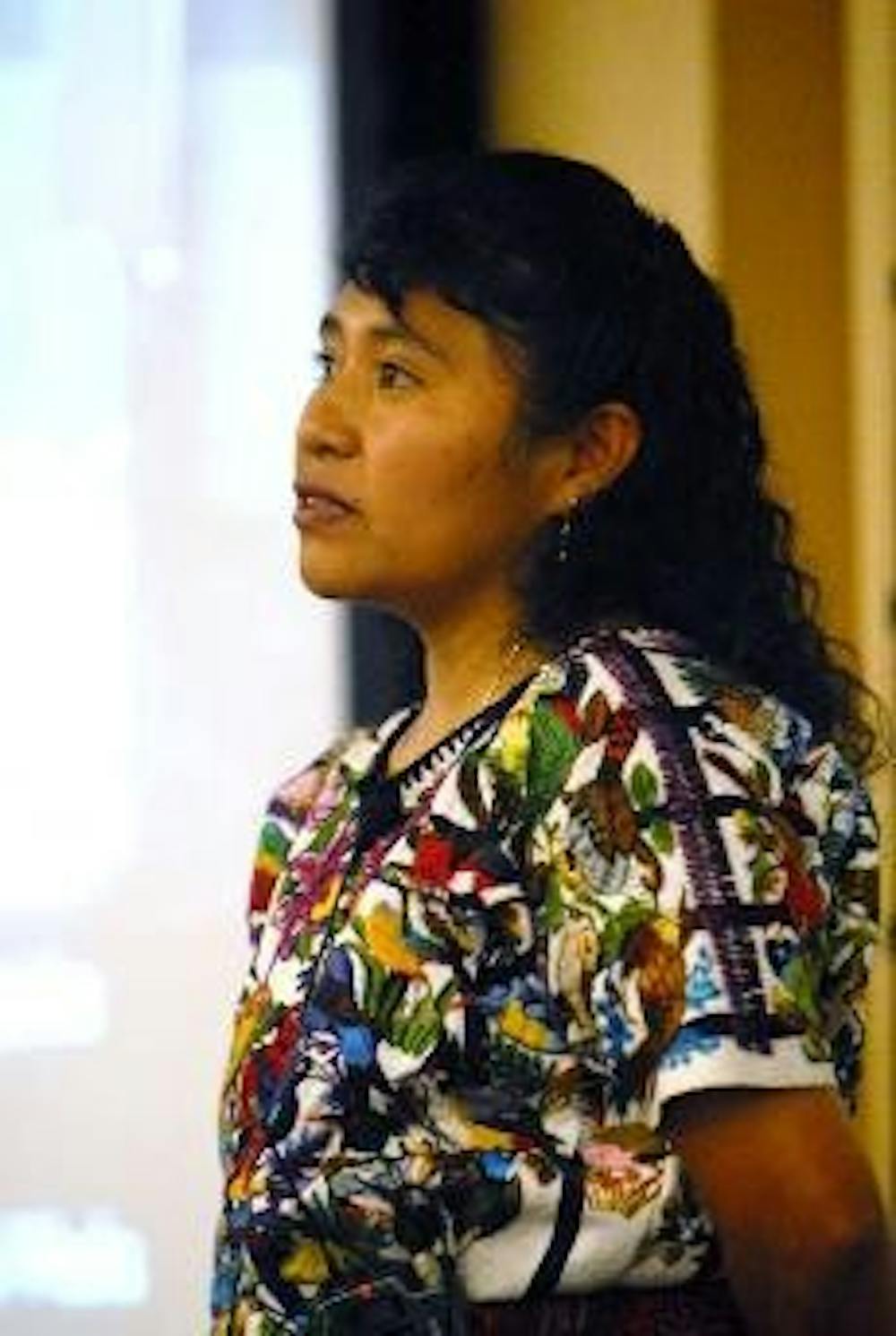Irene Queju was trying to make sense of the chaotic aftermath of Hurricane Stan when duty called.
Among the ruins of her village in Guatemala, Queju, who is a doctor, noticed a woman going into labor and was able to deliver the child.
The mother "named him Moses because that means 'saved by the water,'" Queju said.
Queju spoke through a translator in front of about 40 people in the Nursing Education Building auditorium on behalf of the University of Pennsylvania Guatemala Health Initiative, Women's Health and Midwifery at Penn, and Pueblo a Pueblo, a non-profit aid organization. She described the aftermath of the hurricane in her village.
Queju is a Guatemalan doctor who helped found Hospitalito Santiago Antitlan. She continued to work in the village after the hospital was destroyed by Hurricane Stan and is now attempting to raise money to fund the construction of a new hospital.
She described the events of Oct. 5, 2005, when Hurricane Stan tore through the village, causing a mudslide that destroyed the village and left 5,000 homeless.
That day, she was awakened by firefighters hustling through the streets and ran to the center of the village where she "could not recognized the people she knew because mud covered their faces."
She attempted to call the hospital but then realized that it had been destroyed.
Hospitalito Santiago Antitlan was built to address the high infant- and mother-mortality rate in the region, Queju said.
Before the construction of the Hospitalito, mothers were transported across a lake to a waiting car and then moved to the nearest hospital, which was in the city of Solola. This two- to three-hour-long journey led to the deaths of many expectant mothers and their children, Queju said.
She said that a new hospital will have to be built in phases because of a lack of funds.
Second-year Medical student and audience member Michael Boucher had spent time in Queju's hometown and was able to describe the current conditions there.
"There is a very small emergency room that is open 24 hours a day," Boucher said. "I had to learn to work in three languages. The doctors spoke Spanish and translated [the patients' words] from T'ztujil," the indigenous language.



